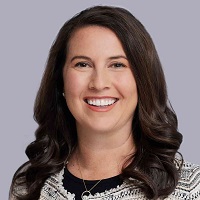10 Ways to Refine Your Financial Plan for a More Secure Future
Significant benefits throughout the rest of the year can be had if you take some time now to revisit your financial plan and adjust accordingly.


Profit and prosper with the best of Kiplinger's advice on investing, taxes, retirement, personal finance and much more. Delivered daily. Enter your email in the box and click Sign Me Up.
You are now subscribed
Your newsletter sign-up was successful
Want to add more newsletters?

Delivered daily
Kiplinger Today
Profit and prosper with the best of Kiplinger's advice on investing, taxes, retirement, personal finance and much more delivered daily. Smart money moves start here.

Sent five days a week
Kiplinger A Step Ahead
Get practical help to make better financial decisions in your everyday life, from spending to savings on top deals.

Delivered daily
Kiplinger Closing Bell
Get today's biggest financial and investing headlines delivered to your inbox every day the U.S. stock market is open.

Sent twice a week
Kiplinger Adviser Intel
Financial pros across the country share best practices and fresh tactics to preserve and grow your wealth.

Delivered weekly
Kiplinger Tax Tips
Trim your federal and state tax bills with practical tax-planning and tax-cutting strategies.

Sent twice a week
Kiplinger Retirement Tips
Your twice-a-week guide to planning and enjoying a financially secure and richly rewarding retirement

Sent bimonthly.
Kiplinger Adviser Angle
Insights for advisers, wealth managers and other financial professionals.

Sent twice a week
Kiplinger Investing Weekly
Your twice-a-week roundup of promising stocks, funds, companies and industries you should consider, ones you should avoid, and why.

Sent weekly for six weeks
Kiplinger Invest for Retirement
Your step-by-step six-part series on how to invest for retirement, from devising a successful strategy to exactly which investments to choose.
The early part of a new year offers an opportunity for reflection — a chance to pause, assess where we’ve been and determine where we’re headed. It can also be an ideal time to adjust your financial strategy so your wealth continues to serve your broader life goals.
Working with professionals and business leaders with busy schedules throughout my career, I’ve seen firsthand how revisiting and refining financial plans near the start of the year can provide significant benefits throughout the rest of the year.
Here are 10 high-impact strategies you may want to consider:
From just $107.88 $24.99 for Kiplinger Personal Finance
Become a smarter, better informed investor. Subscribe from just $107.88 $24.99, plus get up to 4 Special Issues

Sign up for Kiplinger’s Free Newsletters
Profit and prosper with the best of expert advice on investing, taxes, retirement, personal finance and more - straight to your e-mail.
Profit and prosper with the best of expert advice - straight to your e-mail.
1. Update your financial baseline
A clear view of your holistic financial situation is the foundation of good decision-making. I often work with clients to revise their net worth and the list of their assets and liabilities to reflect any changes from the previous year. For example, I might assess how market volatility or major purchases impacted their broader financial picture.
Knowing where you stand helps you evaluate whether your investments perform at the level you set, if your allocations are still appropriate and whether you’re on track to meet your goals. This clarity can help high-net-worth families with complex portfolios make informed decisions.
2. Revisit your philanthropic plan
For many, wealth provides an opportunity to give back to the people or causes they care about most. If philanthropy is a pillar of your financial plan, the early months of the year can be a great time to revisit your strategy. Ask yourself: Are your contributions aligned with the things you care about? Are you taking advantage of tax benefits through tools like donor-advised funds (DAFs) or charitable trusts?
3. Review your spending and budgeting
Even if routine bills aren’t a month-to-month concern, understanding inflows and outflows can be foundational to maintaining overall financial health. Examining last year’s expenses and separating one-time costs — such as home investments or medical bills — from recurring expenses can provide valuable insights.
Armed with this information, you can identify your spending habits and create a road map for the rest of the year. This step helps you spend your income intentionally, whether it’s for personal enjoyment, family needs or wealth-building priorities.
4. Assess the value of illiquid compensation
Executives with equity in the company they’re dedicated to may want to periodically gauge the value of this non-cash compensation and understand how much of their net worth it represents.
For instance, by establishing a 10b5-1 plan, executives can safely execute stock transactions during open trading windows, mitigating legal risk and balancing corporate responsibility with life priorities. These plans allow executives to schedule trades in advance and thoughtfully align transactions with their near- and long-term investment goals.
5. Rebalance your portfolio
With the extreme market fluctuations we’ve seen in recent years, your portfolio may have drifted from its ideal baseline allocation. The beginning of the year is typically a good time to review your asset mix and rebalance if needed to verify appropriate diversification and income considerations.
For instance, because equity markets showed strong performance in 2024, your allocation might be overweight compared to fixed-income investments, exposing you to undue risk. Rebalancing can help ensure your portfolio reflects your current risk tolerance in line with your long-term goals.
6. Maximize tax-advantaged accounts
Tax efficiency can be one of the most powerful ways not to leave money on the table. Contributing to tax-advantaged accounts such as 401(k)s, IRAs, HSAs or 529 plans early in the year allows you to maximize compounding growth throughout the year.
If your income exceeds limits for direct contributions or you have a lower-than-normal income year, strategies like Roth conversions can help you leverage available tax benefits to grow your wealth efficiently.
7. Evaluate insurance coverage
Insurance is often overlooked in the financial planning process, but it can play a critical role in protecting the wealth you’ve worked hard to build. It could be helpful to review your coverage to confirm that it reflects your current assets and liabilities. For instance, if you’ve acquired new properties or valuable assets, you may need to update your homeowners or umbrella policies.
As the costs of many types of insurance have fluctuated over the years, you can look for opportunities to reduce your premiums by raising deductibles or eliminating unnecessary features. Regular reviews can help you avoid overpaying while safeguarding you from inadequate protection.
8. Optimize estate planning by making annual exclusion gifts
Annual exclusion gifts can be an effective way to reduce estate tax exposure and use your wealth to benefit your loved ones. The IRS now allows for $19,000 per beneficiary annually without triggering gift taxes or using the lifetime estate tax exemption.
Gifting early in the year boosts the potential for these funds to grow over time, typically making it a more strategic move for generational wealth planning.
9. Get ahead of taxes
Early planning is an essential strategy of financial planning for those with complex finances and extensive assets. Taking time early in the year to review potential tax-saving strategies for the year ahead, particularly for executives, can yield dividends.
For instance, if you’re likely to have a high-income year or significant capital gains, employing strategies like tax-loss harvesting or charitable giving can effectively offset liabilities. Working closely with a financial adviser gives you access to some expertise and guidance to deploy those strategies at an advantageous moment.
10. Engage your family in financial conversations
For many, a key element of building their wealth is the opportunity to leave a lasting legacy. Regular family check-ins can be an excellent way to establish a shared vision for the future and align priorities.
These conversations can include educating younger generations about activating resources, philanthropic efforts or planning for long-term care. Engaging your family can instill confidence in the collective ability to manage wealth while creating the foundations for thoughtful stewardship across future generations.
A year of purpose-driven wealth
As I look ahead to the rest of the year, I’m reminded that wealth is more than just numbers; it’s a means to something greater. By taking the time to review, refine and recalibrate, we can align our financial strategies with our values and activate our wealth to support the life we envision.
Related Content
- Financial Planning: The Best Defense Against Financial Fear
- Five Financial Tips to Help You Plan for the Unexpected
- Seven Biggest Financial Planning Myths: How Many Do You Believe?
- 11 Ways to Grow Your Wealth
- How to Keep Lifestyle Creep From Hurting Your Wealth
Profit and prosper with the best of Kiplinger's advice on investing, taxes, retirement, personal finance and much more. Delivered daily. Enter your email in the box and click Sign Me Up.

As the chief planning officer, Jennifer works with the planning, insurance and generosity teams to deliver support to advisers and a personalized experience to SignatureFD clients. She is involved in all levels of servicing clients’ financial planning needs, including developing and implementing comprehensive wealth management programs in cash flow, retirement planning, risk management and insurance, tax planning and education funding in an integrated way. She aims to ensure each client has a consistent and holistic experience by integrating the firm’s various disciplines into financial planning. She seeks to help clients achieve their Net Worthwhile® by coordinating and pursuing their goals in SignatureFD’s four pillars of wealth activation: Grow, Protect, Give and Live.
-
 Quiz: Do You Know How to Avoid the "Medigap Trap?"
Quiz: Do You Know How to Avoid the "Medigap Trap?"Quiz Test your basic knowledge of the "Medigap Trap" in our quick quiz.
-
 5 Top Tax-Efficient Mutual Funds for Smarter Investing
5 Top Tax-Efficient Mutual Funds for Smarter InvestingMutual funds are many things, but "tax-friendly" usually isn't one of them. These are the exceptions.
-
 AI Sparks Existential Crisis for Software Stocks
AI Sparks Existential Crisis for Software StocksThe Kiplinger Letter Fears that SaaS subscription software could be rendered obsolete by artificial intelligence make investors jittery.
-
 Quiz: Do You Know How to Avoid the 'Medigap Trap?'
Quiz: Do You Know How to Avoid the 'Medigap Trap?'Quiz Test your basic knowledge of the "Medigap Trap" in our quick quiz.
-
 5 Top Tax-Efficient Mutual Funds for Smarter Investing
5 Top Tax-Efficient Mutual Funds for Smarter InvestingMutual funds are many things, but "tax-friendly" usually isn't one of them. These are the exceptions.
-
 Why Invest In Mutual Funds When ETFs Exist?
Why Invest In Mutual Funds When ETFs Exist?Exchange-traded funds are cheaper, more tax-efficient and more flexible. But don't put mutual funds out to pasture quite yet.
-
 We Retired at 62 With $6.1 Million. My Wife Wants to Make Large Donations, but I Want to Travel and Buy a Lake House.
We Retired at 62 With $6.1 Million. My Wife Wants to Make Large Donations, but I Want to Travel and Buy a Lake House.We are 62 and finally retired after decades of hard work. I see the lakehouse as an investment in our happiness.
-
 Social Security Break-Even Math Is Helpful, But Don't Let It Dictate When You'll File
Social Security Break-Even Math Is Helpful, But Don't Let It Dictate When You'll FileYour Social Security break-even age tells you how long you'd need to live for delaying to pay off, but shouldn't be the sole basis for deciding when to claim.
-
 I'm an Opportunity Zone Pro: This Is How to Deliver Roth-Like Tax-Free Growth (Without Contribution Limits)
I'm an Opportunity Zone Pro: This Is How to Deliver Roth-Like Tax-Free Growth (Without Contribution Limits)Investors who combine Roth IRAs, the gold standard of tax-free savings, with qualified opportunity funds could enjoy decades of tax-free growth.
-
 One of the Most Powerful Wealth-Building Moves a Woman Can Make: A Midcareer Pivot
One of the Most Powerful Wealth-Building Moves a Woman Can Make: A Midcareer PivotIf it feels like you can't sustain what you're doing for the next 20 years, it's time for an honest look at what's draining you and what energizes you.
-
 Stocks Make More Big Up and Down Moves: Stock Market Today
Stocks Make More Big Up and Down Moves: Stock Market TodayThe impact of revolutionary technology has replaced world-changing trade policy as the major variable for markets, with mixed results for sectors and stocks.